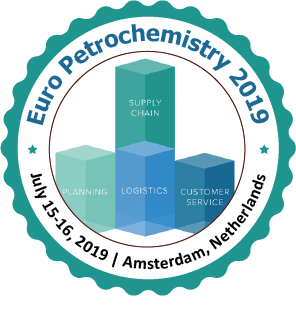
Li Wang
Dalian Maritime University, China
Title: CO2 Conversion into High-Value Chemicals and Fuels by a Hybrid Plasma-Catalysis Technology
Biography
Biography: Li Wang
Abstract
Direct conversion of CO2 into high-value chemicals (CO, CH3OH, CH3COOH) remains a challenge due to high stability of CO2 molecule. In this study, non-equilibrium plasma is used to strengthen catalytic CO2 conversion, which realizes CO2 decomposition to CO, hydrogenation to CH3OH, reforming with CH4 to CH3COOH at about room temperature and atmospheric pressure, respectively. For CO2 decomposition to CO route, MoOx-based catalyst gives higher CO2 decomposition performance among transitional metal oxides, which was further improved when Bi doped MoOx catalyst. For CO2 hydrogenation to CH3OH route, the methanol production was strongly dependent on the plasma reactor setup, and the maximum methanol yields of 11.3% and methanol selectivity of 53.7% were achieved over Cu/γ-Al2O3 catalyst using a special water-cooling reactor. Besides, O-deficient NiO catalyst was recently found to prefer to methanol production compared to NiO catalyst. For CO2 reforming to CH3COOH route, conversion of CO2 with CH4 into liquid fuels and chemicals in a singlestep catalytic process bypassing the production of syngas is a hot and challenging issue. In our study, one-step synthesis of acetic acid, methanol, and ethanol from CO2 and CH4 has been achieved at room temperature (30 oC) and atmospheric pressure for the first time using a novel plasma reactor with a water electrode. The total selectivity to oxygenates was ca. 50-60%, with acetic acid as the major component at 40.2% selectivity, the highest value reported for acetic acid so far. Interestingly, direct synthesis of acetic acid from CH4 and CO2 is an ideal reaction with a 100% atom economy, but it is almost impossible to occur via thermal catalysis as this reaction suffers double restrictions from dynamics and thermodynamics due to excellent stability of CH4 and CO2 molecules.

